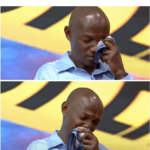Here are some common misconceptions about domestic violence:
Myth: Domestic violence only happens in low-income or minority communities.
Reality: Domestic violence can occur in any community, regardless of socioeconomic status, race, or ethnicity.
Myth: Domestic violence is only physical.
Reality: Domestic violence can take many forms, including emotional, verbal, sexual, financial, and psychological abuse.
Myth: The victim must have done something to provoke the abuse.
Reality: Domestic violence is never the victim’s fault. The abuser is solely responsible for their actions.
Myth: Domestic violence is a private matter.
Reality: Domestic violence is a crime and a serious social issue that requires community involvement and support.
Myth: Only women are victims of domestic violence.
Reality: Domestic violence can affect anyone, regardless of gender, and men can also be victims.
Myth: If the victim really wanted to, they could just leave.
Reality: Leaving an abusive relationship can be incredibly difficult and dangerous, and victims may face significant barriers to escaping the abuse.
Myth: Domestic violence is a rare occurrence.
Reality: Domestic violence is a common problem that affects millions of people worldwide.
Myth: The abuser is always a stranger or someone with a criminal record.
Reality: Most abusers are known to the victim and may appear charming and respectable to outsiders.
Myth: Domestic violence is only physical and visible.
Reality: Domestic violence can be invisible, with emotional and psychological scars that can last a lifetime.
Myth: The victim will always have visible injuries.
Reality: Many forms of domestic violence do not leave visible marks, and victims may hide their injuries or feel ashamed to seek help.
It’s essential to dispel these misconceptions and raise awareness about the complexities of domestic violence to support victims and hold abusers accountable.
If you or someone you know is experiencing domestic violence, there are resources available to help.
Call the CEAF Hotline (09134736562)
CEAF will provide confidential support and connect individuals with local resources and services.
Remember, domestic violence is never the victim’s fault, and help is always available.




0 Comments